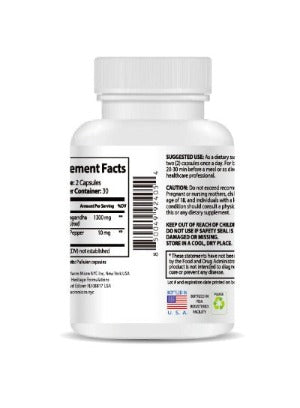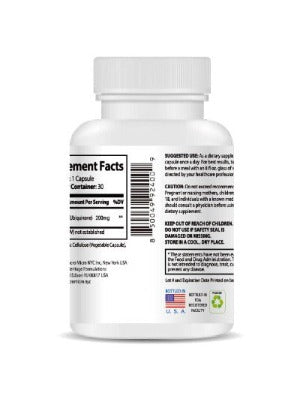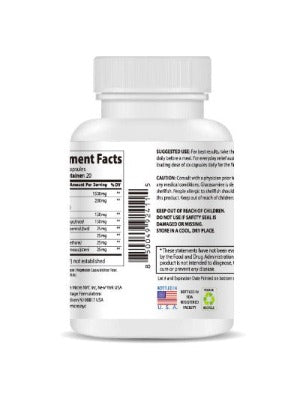You know the feeling. After a long day of meetings, deadlines, and scrolling, your eyes feel heavy, gritty, and tired. You might rub them, blink hard, or reach for some eye drops, chalking it all up to "eye strain." But what if that persistent discomfort is your body’s way of signaling a deeper issue? What if it’s more than just fatigue?
For millions of people, these common complaints are the first signs of Dry Eye Syndrome, a condition that goes far beyond temporary irritation. It’s a chronic lack of sufficient lubrication and moisture on the surface of the eye, and its causes are woven into the fabric of our modern lives—from our digital habits and work environments to our age and hormonal health.
To understand this condition on a deeper level, we turn to the wisdom of Traditional Chinese Medicine (TCM) and the expertise of Dr. Jesse Huang, a distinguished US-based TCM practitioner and a third-generation descendant of Chinese imperial court physicians. According to Dr. Huang, the key to lasting relief isn't just managing symptoms; it's about identifying the condition correctly and treating its fundamental root cause. This guide will walk you through the eight telltale symptoms of Dry Eye Syndrome and illuminate how TCM’s holistic approach can help you restore comfort and health to your eyes from the inside out.
The Telltale Signs: 8 Symptoms That Go Beyond Dryness
Diagnosing Dry Eye Syndrome begins with recognizing its distinct symptoms. While the name highlights dryness, the condition manifests in a variety of uncomfortable ways. According to Dr. Huang, here are the primary signs you should watch for:
Obvious Dryness (眼部乾澀): This is the hallmark symptom—a persistent, uncomfortable feeling of dryness in the eyes.
Foreign Body Sensation (異物感): It feels like you have sand, grit, or an eyelash in your eye that you can’t get out.
A Burning Sensation (燒灼感): Your eyes may sting or burn, especially in windy or dry environments.
Itching (眼睛的癢): A constant desire to rub your eyes to relieve an itchy feeling.
Pain (痛): The discomfort can escalate to outright pain in and around the eyes.
Redness (紅): The whites of your eyes may appear red or bloodshot due to irritation.
Eye Fatigue (視疲勞): Your eyes tire very easily, making it difficult to read, drive, or work on a computer for extended periods.
Blurry Vision (視物模糊): You may experience vision that is temporarily blurry and may clear with blinking.
A Confusing Contradiction: The Paradox of Watery Eyes
One of the most perplexing symptoms of Dry Eye Syndrome is excessive tearing. How can "dry" eyes be watery? Dr. Huang explains this phenomenon, known as reflex tearing, is a clear indicator of the condition.
It happens because the
quality of your tears is poor, causing them to evaporate too quickly. This leaves parts of your cornea—an incredibly sensitive surface—exposed and irritated. In response to this irritation, your nervous system sends out an emergency signal to produce a flood of tears. However, these are "deficient tears" (虛淚), watery and lacking the balanced, nutrient-rich composition needed to properly lubricate and protect the eye.
Dr. Huang uses a powerful analogy: imagine pouring a bucket of water onto dry, cracked earth. The water washes over the surface but doesn't sink in to provide deep, lasting moisture. Similarly, these reflex tears stream from your eyes without providing relief.
Why Me? Uncovering the Root Cause of Dry Eye with TCM
While modern medicine identifies factors like screen time and aging, TCM looks deeper to understand why these factors lead to dryness in the first place. The answer lies not in the eyes themselves, but in the health of the body’s internal organ systems, primarily the Liver and the Kidneys.
The Core Imbalance: A Deficiency of Yin and Blood
In TCM, the eyes are known as the "sensory organ of the Liver." They are nourished and moistened by "Liver Blood" and supported by "Kidney Essence" and "Yin." Yin and Blood are the cooling, moistening, and nourishing substances in the body. When they are abundant, your eyes are bright and comfortable. When they become depleted—a condition known as "Liver Yin Deficiency" or insufficient "Liver and Kidney essence and blood"—dryness is the inevitable result.
Several factors in modern life aggressively deplete our precious Yin and Blood:
-
The Aging Process: As Dr. Huang notes, classical TCM texts like the Huangdi Neijing observed thousands of years ago that our body's Yin energy naturally begins to decline after age 40, leading to a weakening of sight and hearing. This is a direct result of the gradual depletion of Liver and Kidney essence.
Excessive Screen Time: The ancient TCM principle "prolonged looking injures the blood" (久視傷血) has never been more relevant. Dr. Huang explains that the intense focus required for screen time consumes a massive amount of the Blood that is designated to nourish the eyes, leading directly to a state of deficiency and dryness.
Hormonal Changes: TCM has long understood the connection between hormones and the body's fundamental substances. Dr. Huang explains that hormonal shifts, especially the decrease in estrogen during menopause, correspond directly to a deficiency of Liver and Kidney essence and blood. Since women are considered to be "rooted in yin and blood," they are particularly vulnerable to dry eyes when this foundation is weakened.
Lack of Restorative Sleep: Sleep is when your body repairs and regenerates. Dr. Huang highlights that staying up late (熬夜) disrupts this crucial process. According to TCM, blood must return to the Liver during sleep to be cleansed and restored. Consistently sleeping after 11 PM prevents this, leading to a chronic deficiency of clean, nourishing blood and yin.
Dry Environments: Living and working in spaces with air conditioning or central heating exposes you to what TCM calls an external "Dryness" pathogen. This environmental dryness attacks the body from the outside, further depleting your internal Yin fluids and worsening symptoms.
Restoring Balance: The TCM Path to Lasting Relief
The goal of TCM treatment is not just to add moisture temporarily but to correct the internal imbalance so your body can properly lubricate your eyes on its own. This is achieved through a combination of herbal medicine, acupressure, and lifestyle adjustments.
-
Herbal Therapy: Dr. Huang recommends several herbal teas specifically designed to nourish Yin and Blood. Gentle formulas like
Goji Berry & Chrysanthemum Tea nourish the Liver and clear irritation, while more potent combinations like Cassia Seed & Dendrobium Tea work to powerfully generate fluids. Other options include
Mulberry & Goji Berry Tea for building blood and Glehnia & Ophiopogon Tea to combat environmental dryness.
Acupressure: Gently massaging specific points around the eyes can increase local circulation, relieve fatigue, and promote moisture. Dr. Huang suggests focusing on four key points:
Jingming (at the inner corner of the eye), Zanzhu (at the inner end of the eyebrow), Taiyang (at the temples), and Sibai (below the pupil on the cheekbone).
Dietary Therapy: Food is medicine in TCM. Incorporating Yin-nourishing foods like black sesame seeds, lily bulbs, pears, and mulberries can help rebuild your body's fluids from the inside out. This complements modern nutritional advice to consume Omega-3 fatty acids and Vitamin A for eye health.
By understanding that your eye comfort is a direct reflection of your internal health, you can begin to make changes that offer profound and lasting relief.
Your Questions Answered: A Q&A for Eye Discomfort
Q1: What is the most reliable way to tell if I have simple eye fatigue or actual Dry Eye Syndrome?
A: According to Dr. Huang, the key difference is how your eyes respond to rest. The symptoms of simple eye fatigue, like tiredness and soreness, will almost always improve or resolve completely after you take a break or get a good night's sleep. With Dry Eye Syndrome, the core symptoms—especially the feeling of dryness, grittiness, and a foreign body sensation—are persistent and do not go away with rest.
Q2: This is concerning. Can Dry Eye Syndrome affect my long-term vision? A: Yes, it can. If the condition is severe and left untreated, the constant friction and lack of protection on the eye's surface can damage the cornea. Dr. Huang warns that this damage can lead to a permanent decline in vision. From a TCM perspective, any condition that depletes the body's core essence and blood for a prolonged period poses a risk, and it is believed that untreated dry eye can potentially lead to blindness.
Q3: Are the artificial tears I use every day a safe long-term solution?
A: Artificial tears can provide necessary temporary relief, but their long-term safety depends on the type and frequency of use. Dr. Huang points out that many over-the-counter eye drops contain preservatives. If your case is mild and you only use them a few times a day, this may be acceptable. However, for severe cases requiring frequent application (6 to 8 times a day or more), he strongly advises using preservative-free formulas to avoid the risk of preservative build-up damaging the cornea. The goal of TCM is to restore your body’s own tear production, thereby reducing or eliminating this dependency.
Q4: I have to wear contact lenses for my vision. What can I do to manage my dry eye symptoms?
A: This is a very common issue, as Dr. Huang notes that up to 80% of contact lens wearers experience some degree of dryness. He suggests a multi-faceted approach: first, reduce your wear time as much as possible, opting for glasses when you are at home. Second, when you must wear contacts, choose newer, high-moisture or "daily disposable" lens types designed for better hydration. Finally, be diligent with supportive care, such as performing acupressure during breaks and using preservative-free rewetting drops.
Q5: If I start using TCM methods like drinking herbal teas and doing acupressure, how long will it take to feel a difference?
A: The timeline for results depends on the severity of your condition and your consistency. Dr. Huang suggests that for mild to moderate cases of Dry Eye Syndrome, patients can often feel noticeable relief within 2 to 4 weeks. For more severe, chronic conditions, achieving a satisfactory and stable improvement may take several months. He emphasizes that success is greatly enhanced by also making supportive lifestyle changes, such as getting to bed before 11 PM and reducing your intake of spicy foods.









